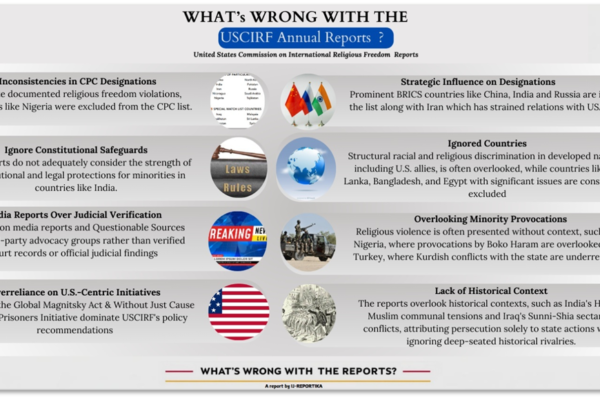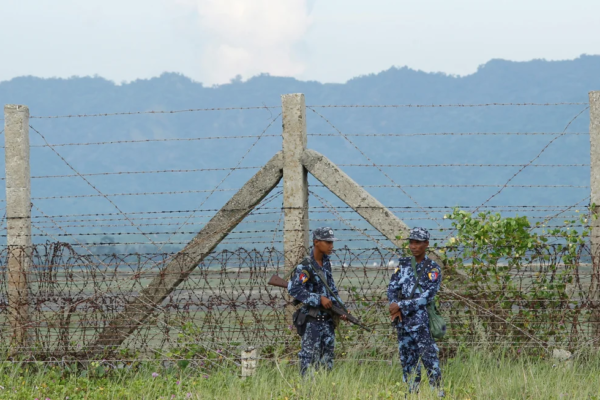A secret deal between the US and China announced in November allowed Chinese nationals to be freed in exchange for the release of several Americans imprisoned in China. One of the Chinese nationals who was freed, Xu Yanjun, had been serving a 20-year sentence. He had worked for China’s Ministry of State Security. One of the Americans in China, John Leung, reportedly an FBI informant, had been held in prison for three years. Two other Americans, Kai Li, also accused of providing information to the F.B.I., and Mark Swidan, a Texas businessman, were freed at the same time. In addition, Ayshem Mamut, the mother of human-rights activist Nury Turkel, and the two other Uyghurs were allowed to leave China. They all traveled on the same plane to the United States. Holden Triplett, the co-founder of a risk-management consultancy, Trenchcoat Advisors, has served as the head of the FBI office in Beijing and as director of counterintelligence at the National Security Council. Here, he weighs in on the high-stakes game of exchanging spies. This interview has been edited for length and clarity. Interviewer: Spy swaps have a long history. What was it like in the past? Holden Triplett: During the Cold War, there were a lot of spy swaps. It’s kind of a normal way of interacting between two rival powers. But it was always Russia, or the Soviet Union, and the United States. It’s not something that China had typically engaged in in the past. Interviewer: Why would China, or any country, be interested in a spy swap? Holden Triplett: China would be very interested in getting back the individuals who’d worked for them. The longer they’re in prison in the U.S., the more chance they’re going to divulge information about what they’ve done. Also, the Chinese want to be able to say to the people who work for them, ‘Hey, we may put you in dangerous situations. But, don’t worry, if anything happens, we’ll get you back home.’ The down side for the Chinese, of course, is that it’s an implicit acknowledgement of what they’ve been doing. In the past, they’ve denied that they’re [engaged in espionage]. Interviewer: And for the U.S? Holden Triplett: The idea is the same; We get our spies back. It’s more of a game, I guess you could say. There’s a bit more protection for spies than for others. They get arrested, but they don’t serve time. And so, spying on each other is made into a regularized affair. My concern is that the Chinese say, ‘Now that we’ve established this kind of exchange, people for people, now all we need to know to do now is pick up some more Americans and arrest them.’ Then, the Chinese can try and bargain with the U.S. for their release. We’ve already seen that in Russia with Brittney Griner [an American basketball player who was imprisoned in Russia]. Look at who the Russians got back – Viktor Bout [a Russian arms dealer found guilty of conspiring to kill Americans]. The Russians have wanted him for decades. Nothing against Ms. Griner, but that is a pretty easy decision-making process. They pick up somebody who has star power, and they can get someone they want back. If China’s gotten that message, then Americans should be concerned about going to China. They could become a chip in a larger geopolitical game. There’s a possibility that they could get arrested and end up in a nightmare jail. Interviewer: Well, they say you’re not supposed to negotiate with – Holden Triplett: – with terrorists. Look, I think the U.S. is in a really difficult place. There’s pressure on the U.S. government from the families to get them back. Interviewer: Several Uyghurs were also released. What is the significance of that? Holden Triplett: I would assume the Chinese got something for this. They’re very transactional. They’re not doing something for the good of the relationship between the U.S. and China. Interviewer: It didn’t seem as though John Leung, who’d been held in a Chinese prisoner, was an important asset for the FBI. What do you think was behind this? Holden Triplett: I don’t know what role he played for the FBI, or even if that’s true. But regardless, the message from the bureau is: Don’t worry. Even if you’re doing dangerous work, we will protect you. We will come and get you. We are : Investigative Journalism Reportika Investigative ReportsDaily ReportsInterviews Surveys Reportika








